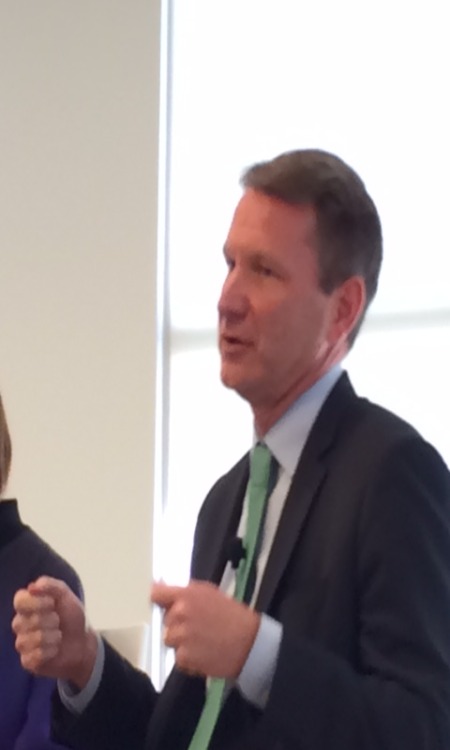May 6, 2019 — “It doesn’t just take a village, it takes an ecosystem,” Jeffrey Shuren, M.D., J.D., director of the Center for Devices and Radiological Health (CDRH), told the annual meeting of the Reagan-Udall Foundation for the FDA in Washington on May 2, highlighting the challenge of drawing upon a sufficiently broad range of expertise from within and without the CDRH to regulate a market comprising nearly 200,000 devices with a broad range of uses and characteristics.
Dr. Shuren appeared on a panel with the directors of the FDA Centers covering drugs, biologics, and food safety; the panel was preceded and followed by comments from Principal Deputy Commissioner Amy Abernethy, M.D., Ph.D., and Acting FDA Commissioner Norman (Ned) Sharpless, M.D.
“Across regulation of drugs, biologics, medical devices, and food safety, the need for better ways to obtain and assimilate real-world data was an underlying theme, and public-private partnerships a preferred solution, as six key FDA leaders spoke about current issues in regulatory science,” noted Jon Bigelow, executive director of the Coalition for Healthcare Communication.
To make regulation of devices less costly, more efficient, and more robust, Dr. Shuren indicated, the CDRH looks for collaboration across government, industry, providers, payers and patients. At the time of approval CDRH often cannot know exactly how the devices will be used at the point of care as opposed to a clinical trial setting, he noted. Among the tools he emphasized to draw in real-world data are the Medical Devices Epidemiology Network (MDEpiNet), the Medical Device Innovation Consortium, and an increasing number of registries on device use.
Janet Woodcock, M.D., director of the Center for Drug Evaluation and Research (CDER), similarly noted that all of the effects of a new drug cannot be known when it is first approved; to do all of the studies that would be needed would make the drug development process even more costly than it now is, she explained. So post-market monitoring of drug effects, notably through the Sentinel System (incorporating clinical records, payment and billing information, and registries) becomes critical.
Dr. Woodcock cautioned that the “garbage in, garbage out” hazard is not suspended in clinical medicine, and it is important to be cognizant of standardization issues and other problems associated with interpreting medical records.
Dr. Sharpless emphasized the need to share data sets more efficiently, and noted “this is harder to do than you’d think,” given issues with incompatible files, with aggregating data, and with needing to layer in protections for patient privacy. Dr. Abernethy, who is both a hematologist-oncologist and a clinical data expert who worked previously for a tech start-up, is serving additionally as acting chief information officer to help the FDA to “develop a technology and data vision for the future and start to build it,” she said.




